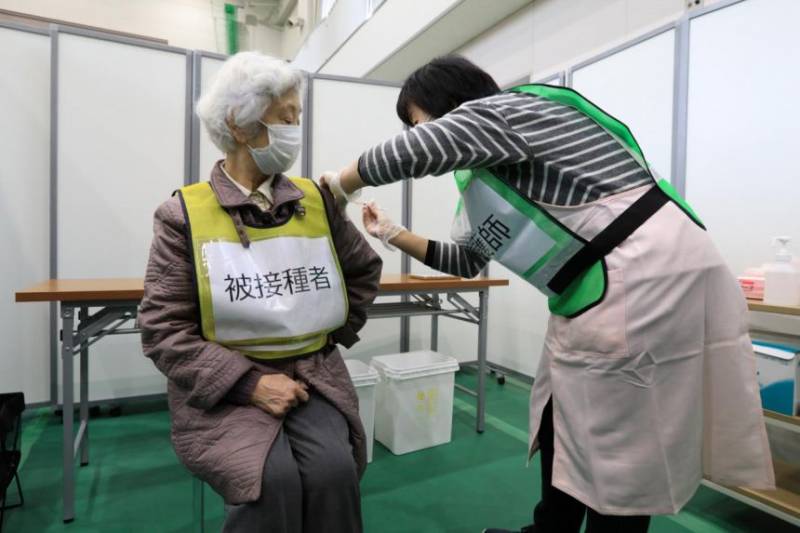Japan says EU export curbs delaying its Covid-19 vaccination plan

Stay tuned with 24 News HD Android App

EU export rules are preventing Japan from finalising its coronavirus vaccination plan, a Tokyo minister said Tuesday, after the bloc introduced a controversial new mechanism for the shipment of jabs made inside its borders.
With less than six months until the pandemic-postponed Tokyo Olympics, Japan has yet to set out when it will vaccinate its population of 126 million people, although it hopes to give the first doses later in February.
The European Union, which is facing criticism of its own sluggish Covid-19 vaccine rollout, on Friday brought in a new rule requiring drug-makers to seek approval before exporting vaccines to non-EU countries.
"Because of that, we have not been able to finalise our supply schedule," said Taro Kono, the minister in charge of Japan's vaccine programme.
Japan has reached deals with Pfizer, Moderna and AstraZeneca to buy enough vaccine doses for its population.
But health authorities want to confirm the vaccines' safety through domestic clinical trials before giving any of them a green light.
The jab from Pfizer -- which, along with AstraZeneca has factories in the EU -- will likely be the first approved.
Kono, the outspoken minister for regulatory reform, also called for international measures to prevent so-called "vaccine nationalism" impacting on global health.
Delays have dogged both the procurement and rollout of vaccines in the EU, which has been embroiled in a furious dispute with AstraZeneca.
The bloc accuses AstraZeneca of breaching its contract by delaying deliveries to EU governments while maintaining those under a deal it signed earlier with the United Kingdom.
On Friday, the European Commission launched a scheme to monitor and in some cases bar exports of vaccines produced in EU plants -- an emergency measure that has been criticised by the World Health Organization.
Kono said he understood the EU's predicament, but stressed that the export rules had come in after vaccines became available, and had "started to affect supplies".
"We realise that the EU has made initial investments and has not been able to secure vaccines that it needs," Kono said.
"My honest feeling is that I hope they would not do anything to impact a supply schedule that was already decided," he said.
